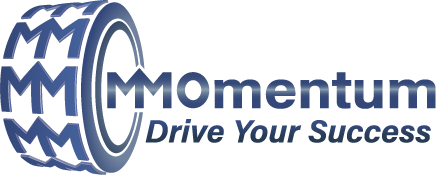
A core aspect of my consulting business has always been to establish the “ground truth.” Doing so requires uncovering the actual situation, identifying the key participants and stakeholders, and understanding the root causes that must be first addressed to develop an impactful and long-lasting solution. Finding the parallel meaning of ground truth within my executive coaching practice led me to think about how I could help a client establish their ground truth as part of the coaching process. During a morning walk with Poppy, I contemplated the differences between two seemingly similar concepts: self-reflection and self-discovery. That quiet time allowed me to analyze and organize my thoughts, leading me to favor the “self-discovery” approach for my coaching clients. While other coaches may hold different but similarly valid perspectives on this matter, my coaching style is skewed towards constructive empathy and analysis to redirect clients toward a forward-facing perspective and goals-based approach.
Self-Reflection vs. Self-Discovery
Before delving into the advantages of self-discovery, let’s clarify these two concepts with an analogy: Self-Reflection is to Perception as Self-Discovery is to Perspective.

Self-reflection implies more passive introspection with the goal of gaining insights into our true selves to reach personal goals. However, that process is inherently limiting within the realm of executive coaching because we interpret what we see through the lens of our own perceptions, potentially blinding us to both our greatest strengths and weaknesses. Another potential drawback of self-reflection is the tendency to dwell on the past thus getting stuck asking “why” questions to understand our present condition/situation. By getting stuck looking backward, we potentially create a barrier to moving forward. That said, self-reflection, when guided by a professional life coach or therapist, can be a powerful tool and a necessary first step to improve the effectiveness of goal-driven leadership coaching.

On the other hand, self-discovery is a dynamic pursuit aided by a leadership coach’s active inquiry and a forward-focused approach. Self-discovery changes the client’s perspective to give them insights into who they are today. It allows clients to remove the layers of false perceptions and internal narratives so they may unearth their genuine selves in the present moment – thus creating the foundation to pursue transformative personal and professional growth.
The Power of Self-Discovery in Executive Coaching
Here are five key benefits of embracing “self-discovery” in the context of executive coaching:
- Authenticity: Self-discovery promotes authenticity by actively uncovering the client’s true self. Through active inquiry and constructive empathy, this approach encourages clients to explore their strengths, weaknesses, goals, and aspirations in a pragmatic and safe environment. By doing so, they can pursue a path that aligns with their authentic selves, ultimately achieving professional goals that resonate with their true nature.
- Accountability: Self-discovery implies a dynamic journey of exploration, development, and evolution. This process naturally fosters a sense of ownership in clients, compelling them to take charge of their growth trajectory. Importantly, it drives them to become more accountable for their actions and decisions to become even more effective leaders.
- Self-Awareness: Although self-discovery may initially provoke discomfort, it often leads to profound and lasting professional benefits. Greater self-awareness empowers individuals to project authenticity in their leadership roles and significantly enhances their decision-making capabilities. It becomes a powerful tool enabling them to remove personal biases and/or non-constructive impulses.
- Resilience: Beyond promoting authenticity and accountability, self-discovery also nurtures resilience in leaders. As clients respond to the active inquiry (read as pushed in a constructive, empathetic, and supportive manner) and explore their authentic selves, they become better equipped to navigate challenges and setbacks. There is a toughening of the ego because there is less to hide behind. This process equips them with the tools to develop a more resilient and adaptable leadership style – especially when challenged by their employees, executives, and all other stakeholders within and outside the company.
- Growth: Clients will likely experience some level of discomfort throughout the self-discovery process, but that step cannot be ignored. Self-discovery allows the client to grow beyond the internal obstacles and self-imposed limitations so they may focus on further enhancing their leadership skills, like adaptability, decision-making skills, or emotional intelligence. This process is critical to establishing genuine coachability, which will then open the doors to what comes next in the coaching process and ultimately allow the client to reach their authentic goals.
Conclusion
For the reasons stated above, I find that “self-discovery” resonates best with my professional style and the types of clients I serve. I also recognize that self-reflection, when guided by an experienced life coach or a therapist, can serve as a necessary foundational step before a client starts their leadership coaching journey. In this context, self-discovery not only provides a formidable tool for clients to uncover their true selves (their ground truth), but also enables an executive coach to assess a client’s coachability and thus their ability to reach their professional goals. By nurturing authenticity, accountability, self-awareness, resilience, and growth, this approach equips clients with an indispensable tool required to succeed in their professional journeys. While the path may present challenges, it leads to enduring growth, fulfillment, and a profound transformation into exceptional leaders.
